First of all, there are three key points to consider when thinking about constructing a Network State.
\
-In this apocalyptic age, what kind of new civilization should we aim to build?
-Where should this new social system actually be build?
-What is the optimal path to build this new social system?
#1. In this Apocalyptic Age, What Kind of New Society Should We Aim to Create?
I believe there are mainly six aspects to consider:
-A Circular Economy System Adapted to Earth’s Resource Production Capacity
As presented in the "Living Planet Report" by the WWF, if we do not achieve this, it is already predicted that humanity will eventually deplete Earth's resources due to population explosion. Predictions from 2012 indicated that by 2030, more than two Earths' worth of resources would be needed to sustain the current population, and this situation has not dramatically improved since then.
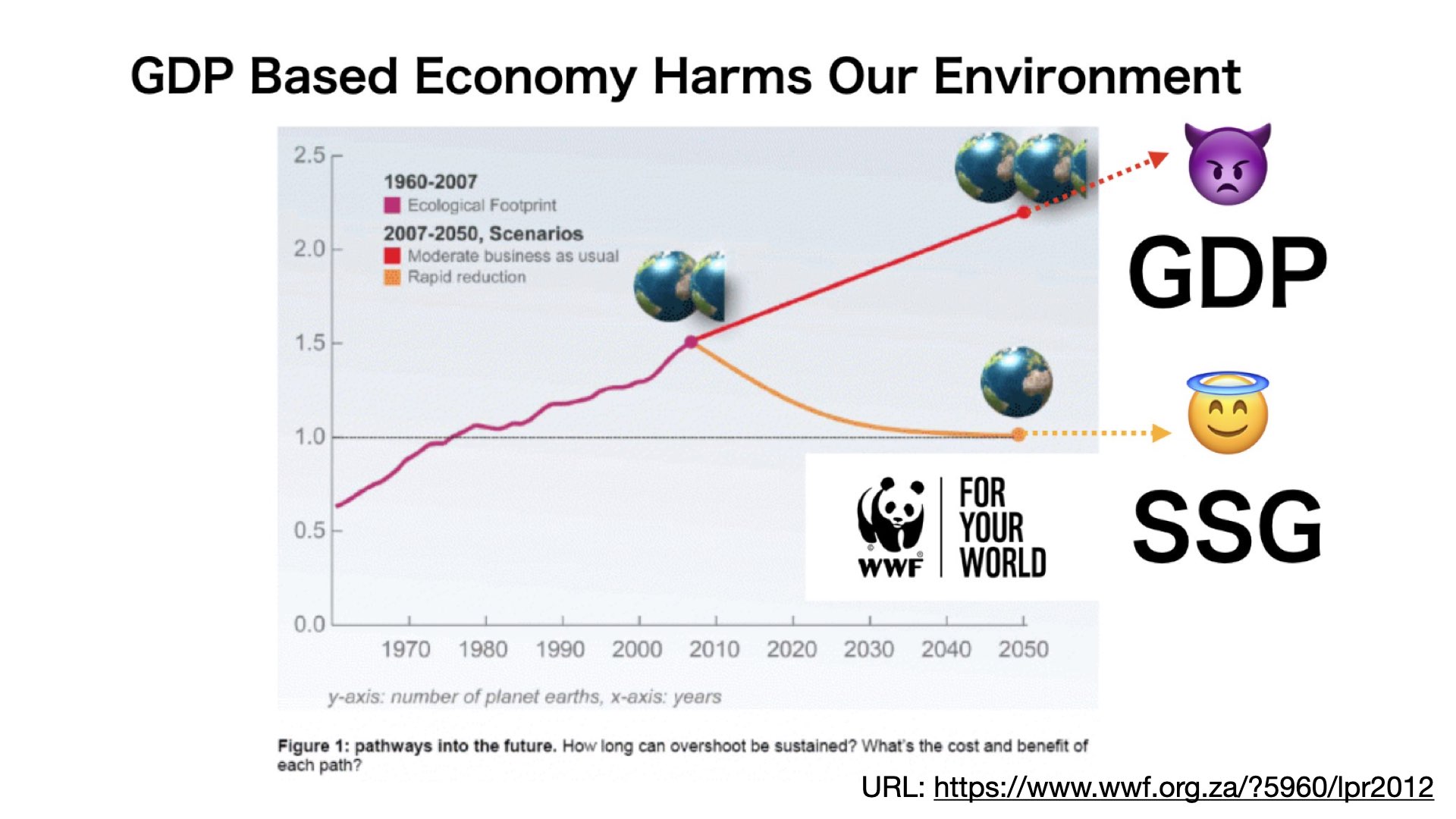
Ideally, we would build a spaceship capable of migrating to a planet with a similar natural environment as Plan B. However, there are no planets in the solar system as rich in natural environments as Earth. Moving to another planet in the solar system would require a commitment to endure significantly harsh living conditions for life.
The most important thing in the model transformation of current civilization is to change the economic growth indicator from GDP to SSG (Self-Sustaining Growth) . While GDP measures growth by capital amount, SSG, in my definition, measures it by self-sufficiency rate. In other words, the higher the self-sufficiency rate of an economic unit, the higher its sustainability is evaluated.
GDP as an economic indicator is an eternally expanding economic model, inherently motivating population growth within the economic unit. On the other hand, SSG, being a circular growth indicator, aims to optimize economic growth to match the resource reproduction capacity of Earth, leading to an economic unit that grows in harmony with the planet’s sustainable population size.
To construct such a circular economic system, a corresponding financial system is certainly necessary.
-Stable Deflationary Currency System Instead of Inflationary
Our current financial system operates on the premise of stable inflation, targeting an annual rate of 2% inflation, as seen from measuring GDP in capital terms. This system is incompatible with an economic system that places SSG as its growth indicator. Instead of a stable inflationary model, a stable deflationary financial system is necessary.
Based on the basic concept of the Quantitative Theory of Money proposed by American economist Irving Fisher, expressed in the equation MV = PT, a stable deflationary currency system can operate an economic system. This would be a revolutionary financial theory in economic history. The initial theory, proposed by German economist Silvio Gesell as the concept of “Freigeld” (free money) in his "Natural Economic Order," has become technically possible with the invention of blockchain. This innovation has significantly increased the feasibility of realizing this social experiment. While Bitcoin is a precursor, it still has issues such as being deflationary rather than supply-fixed and stabilizing its value, thus still requiring innovation in this area.
-Political System which Does Not Cause Any Political Power Game
Our current civilization is at a stage where we must realize that the tax system is the root cause of power structures and power struggles. The ideology of "redistribution of wealth" underlying the tax system sounds good but inevitably leads to power struggles over the method of redistribution. The optimal solution to this problem is UBI Technology. Bitcoin can also be considered a precursor in this regard. In 2009, when Bitcoin was born, it was possible to mine Bitcoin even with our laptop computers. However, with the PoW (Proof of Work) mining model, as Bitcoin adoption expands, the required computer resources and electricity costs become enormous, making individual mining impossible. The mainstream Layer 1 Technology that followed, adopting PoS (Proof of Stake), also requires a minimum of 32ETH for Ethereum mining, currently about $100K, making it inaccessible for individuals. Thus, innovation is still also needed in this area.
-Balancing Techno-Optimism and Social System Stability
Without this, the means to achieve a circular economy would merely be to build self-sufficient village-level societies.
Humanity has always found new paths of evolution through the invention of new technologies. The agricultural revolution brought by the invention of farming machinery, the navigation revolution brought by the invention of the compass, the religious reform brought by the invention of printing technology, the space exploration brought by the invention of airplanes, and the financial revolution brought by the invention of computers with Bitcoin. Furthermore, new waves of social transformation are coming with blockchain and AI.
What we need to understand first is that these two fundamentally have opposing natures.
The best examples to help you understand this are the United States and Japan from their native culture and consensus.
The United States is a society that always emphasizes promoting techno-optimism, as seen in the popularity of e/ACC ideology. On the other hand, Japan is a society that always values social system stability (though different periods in history, such as the era of Oda Nobunaga, were exceptions, at least currently, this is true).
The underlying principle of the American system, as well known in America, is the "Frontier Spirit." It is about not fearing new explorations and always positively embracing the changes they bring.
To promote techno-optimism, the government, whether at the federal or state level, does not impose strict regulations in detail on society. The government's role in regulation is kept to a minimum to nurture innovation seeds, knowing that strict regulations can hinder growth.
A clear example is in autonomous driving with AI. In California, where Silicon Valley is located, even if people die in traffic accidents due to malfunctions of this still immature technology, the state government will not introduce strict regulations to prevent such problems in advance.
However, promoting techno-optimism has a significant trade-off in social management. It is the idea of always consciously sacrificing or abandoning social stability. In other words, to continually pursue the research, development, and social implementation of new technologies, society needs to maintain a state of “Chaos”.
Furthermore, the value system that rapid social changes brought by the spread of new technologies are justifiable only for those who can keep up becomes central to society. Those who cannot keep up are seen as at fault. The presence of “Hillbillies”, often discussed in US presidential elections, can be seen as people forced to drop out of the market economy due to this e/ACC-centered social orientation.

In contrast, Japan is the exact opposite. The "Conformity Pressure" that Japanese people favor is a typical example. Naturally, new technologies destabilize a society that was stable at a certain equilibrium point, pushing it towards a new equilibrium. For e/ACC adherents, this chaotic state is an excellent business opportunity, but for those who value stability, it brings only anxiety and fear.
Therefore, in Japan, to maximize respect for the opinions of stability-oriented people, the government applies overly detailed regulations to society, almost to the point of overprotection. The Japanese Labor Standards Law is a prime example, making it extremely difficult to fire someone once hired, a fatal handicap for startups with limited funding. Thus, innovators feel as if they are tied up with ropes all over their bodies, unable to move properly due to such “Over-protectionism” regulations.
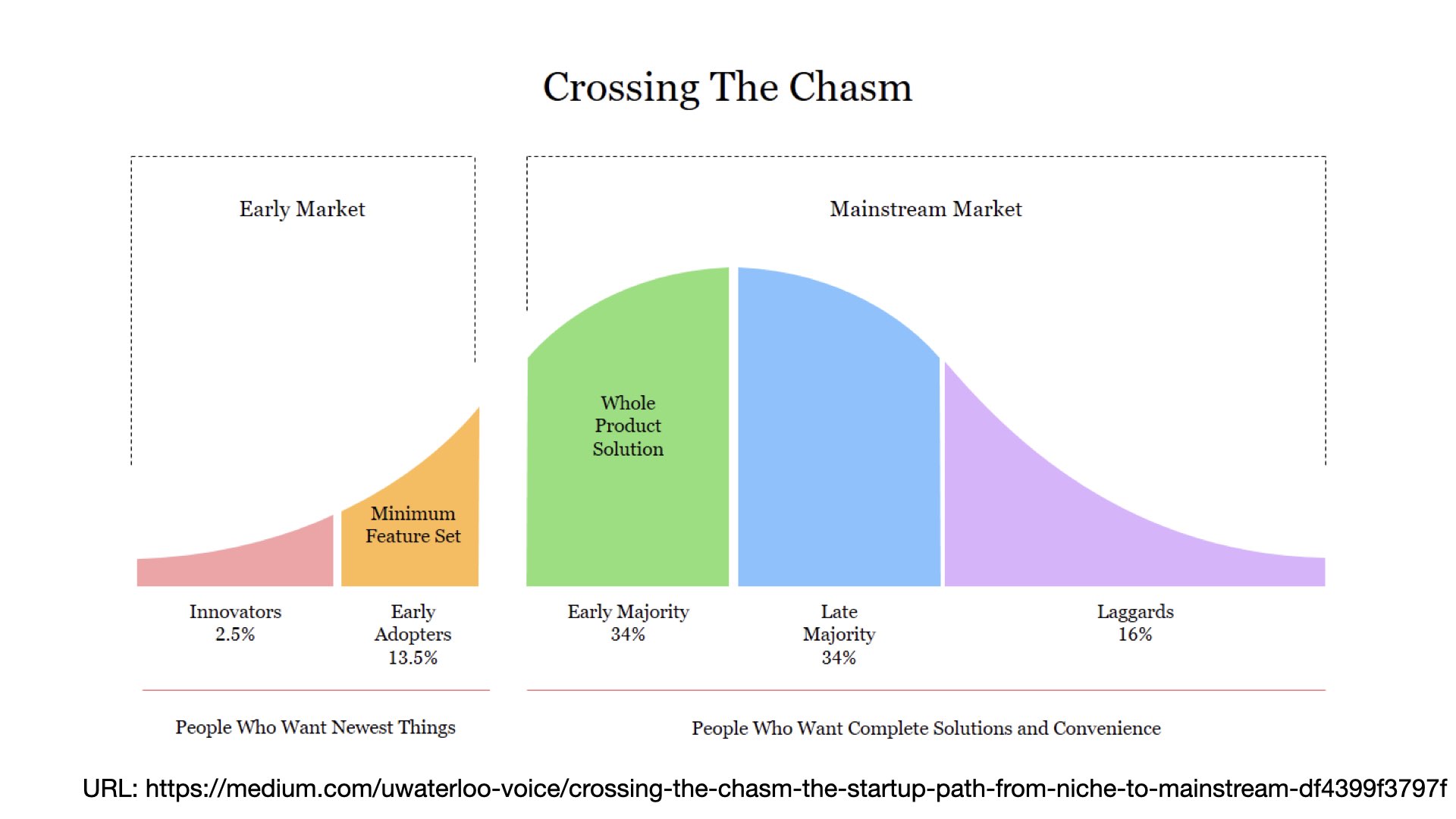
Most importantly, those who believe in new technologies are naturally a social minority in the initial stages, as confirmed by the Chasm Theory, representing less than 2.5% of the total population, a figure likely even lower in Japan based on my experience of over ten years as a tech entrepreneur in Japan, where the market share of innovators feels below 1.0%.
Understanding this, it is clear how Japan's conformity pressure crushes the seeds of innovation. The value system held by the majority of society, the stability-oriented people, becomes justice, allowing them to easily crush the social minority, the innovators. Particularly in a "Old Nation" like Japan, where over 35% of the population is over 65 years old and holds the greatest voting power in all elections, it is easy to crush those seeds.
As a result, new technology implementations advance first in overseas countries where e/ACC proponents are central to society, and by the time Japan attempts to accept these technologies, they are completely outdated, naturally leading to a decline in economic competitiveness year by year.
Summarizing these two examples simply:
In a chaotic society like the United States, consciously designed for e/ACC adherents to spread their wings, they feel like they are in heaven, becoming leaders of new technology implementations and gaining immense wealth, with society treating them as new era heroes. However, in the background, stability-oriented people are always subjected to extremely harsh conditions economically and mentally.
On the other hand, Japanese society, which has continued to pursue the exact opposite, loses its societal vitality, the population pyramid becomes inverted, and the younger generation continues to bear the burden of the older generation's sins and achievements through heavy taxes and exorbitant social insurance premiums, creating a decayed society that can be called a "Dystopia" for the youth.
Seeing such social miseries on both extreme sides, some people create small-scale self-sufficient village societies in the countryside, claiming them as "utopias for humanity's future." However, from my perspective, this is a regression to "primitive living," a phenomenon that can be called "Civilizational Retreat," showing no evolution as civilized societies.
In other words, my answer is to bring balance to these inherently opposite natures. It can be said to be based on the Taoist concept of the universe from ancient China. I see this direction as the key to creating the "Millennium Kingdom of Bliss" described in the Book of Revelation.
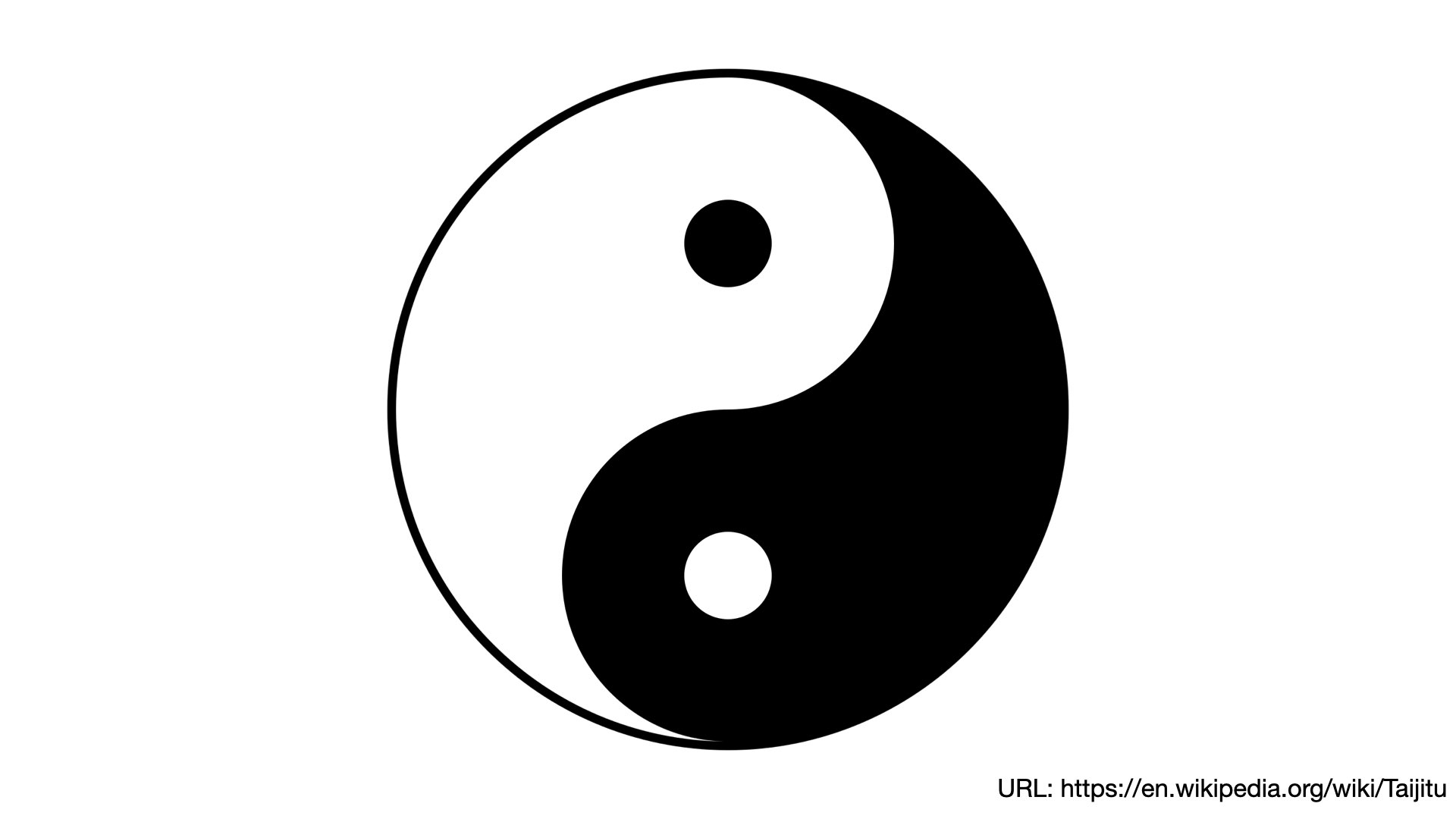
However, we must never forget that this balance must be achieved in a decentralized manner. Achieving it in a centralized manner means our civilization will not advance from where it is now. In other words, we must construct a system that maintains this balance sustainably without relying on the existence of a "government" operated by taxes. This perspective goes beyond the existing political-economic concepts of "big government or small government."
-The Need for a Direct Democracy System That Maximizes Free Will and Breaks Authoritarianism
This plays a crucial role in balancing techno-optimism and social stability. We have learned through the eras of religious dominion and absolute monarchy how authoritarianism, where specific thought models or family lines politically, economically, and spiritually dominate our lives, tramples our "Free Will" and brings unhappiness.
The tactics like Kamikaze Attack, human torpedoes, and human bombs used by Japan in the Pacific War against the United States, which had over 30 times the industrial production power, are typical historical lessons. The Japanese government, initially waging a self-destructive war, used authoritarianism based on religious dominion, claiming that Japan, governed by the divine Emperor, would definitely win the war, forcing hundreds of thousands of young people into suicide attacks on enemy lines. Thus, those at the bottom, governed, had to throw away their lives miserably, regardless of their "Free Will," to protect the power holders. Incidentally, this tendency is still deeply rooted in Japanese society, albeit to a lesser extent under watchful eyes by outside democratic societies, mainly United States.
The democratic revolution brought about as a result of these lessons, and the operation of the political system through parliamentary democracy and the separation of powers ( Judiciary, Legislature, Executive) were expected to solve all the problems of the centralized social management systems in history.
However, reality was different. The subsequent history of humanity has been completely disappointing. Over the past 200 years, we have learned that democracy, governed by majority rule, does not provide a fundamental solution.
Once considered the next utopia, communism also became a tool of political domination convenient for power holders, as evident from the dictatorial power structures under Stalin in the Soviet Union, enforcing even more severe centralized social management on the people at the bottom, regardless of their “Free Will”, ultimately leading to its collapse.
We must deeply understand that "authoritarianism" in social system management acts to degrade social systems. To be honest, authoritarians look like people who insist preservation of superior species as animal does like DNA, which means their intelligence level is as same as animals, not human. This is closely related to the Cypher Punk ideology and can be said to be the sentiment Satoshi Nakamoto entrusted to Bitcoin. The opinions and intentions of each individual in society must be directly reflected in one political-economic unit. The next generation of social systems must ensure that individuals can evolve freely while seeking the evolution of society as a whole. This means that individuals must be able to freely enter and leave society, regardless of skin color, country of birth, family, university attended, or company worked for. Authoritarians who judge whether people can be trusted only by their titles are obstacles.
-Spaceship Development as Plan B
This can be considered as giving humanity expectations similar to a second age of exploration. Currently, planets like Proxima Centauri b and those in the TRAPPIST-1 system, which have environments close to Earth, are attracting attention, but their suitability is not yet guaranteed.
Even if these two planets have environments close to Earth, we do not yet have the technology to invent a spaceship capable of reaching them.
For example, Proxima Centauri b is about 4.24 light-years away from Earth. The fastest spacecraft technology we currently have, the Parker Solar Probe, achieves speeds of about 192 kilometers per second when approaching the sun. At this speed, it would take about 6,500,000 years (6.5 million years) to reach Proxima Centauri b. The TRAPPIST-1 system is about 39.5 light-years away from Earth. Traveling to TRAPPIST-1 with the Parker Solar Probe would take about 61,700 years. Even with future propulsion technologies like laser propulsion or nuclear fusion engines, capable of traveling at a fraction of the speed of light, it would still take decades to centuries.
For these reasons, this item is placed sixth.
#2. Where Should This New Society Actually Be Created?
500 years ago, there were still free lands, but now there are none. Buying land is an option, but it should be assumed that land rich in resources and blessed with climate and natural features is not up for sale. Therefore, building a new social system will inevitably involve choosing a place "within a country."
\
Many people might think that the possibility lies in developing countries. They need talented people to compete with developed countries and offer attractive regulations and tax systems to attract them. This can be considered essential policies to attract techno-optimism believers, who might bring immense wealth to them. However, we also need to be cautious about their political systems itself.
The simple question is, "Can we trust them?" This relates to the discussion of a decentralized society. Many developing countries usually grow with centralized systems, often lacking political stability. Extreme scenarios like military coups leading to regime changes must be considered as inherent risks.
Building a Network State within such a country and achieving peaceful independence is a realistic possibility. It might follow the same process as the American War of Independence against Britain, requiring at least some self-defense capability, making this scenario quite costly in terms of money and time.
Buying security from another country with money is another option. A prime idea is to ensure security from them in exchange for the annual purchase of a certain amount of US Treasury bonds. Japan is an example of this, partly due to historical factors. Japan is currently the largest holder of US Treasury bonds. ( However, if Japan's economic power continues to decline, its ability to buy US Treasury bonds will also decrease, making it difficult to maintain its current relationship with the US. )
Tether USDT's purchase of US Treasury bonds can be linked to this discussion.
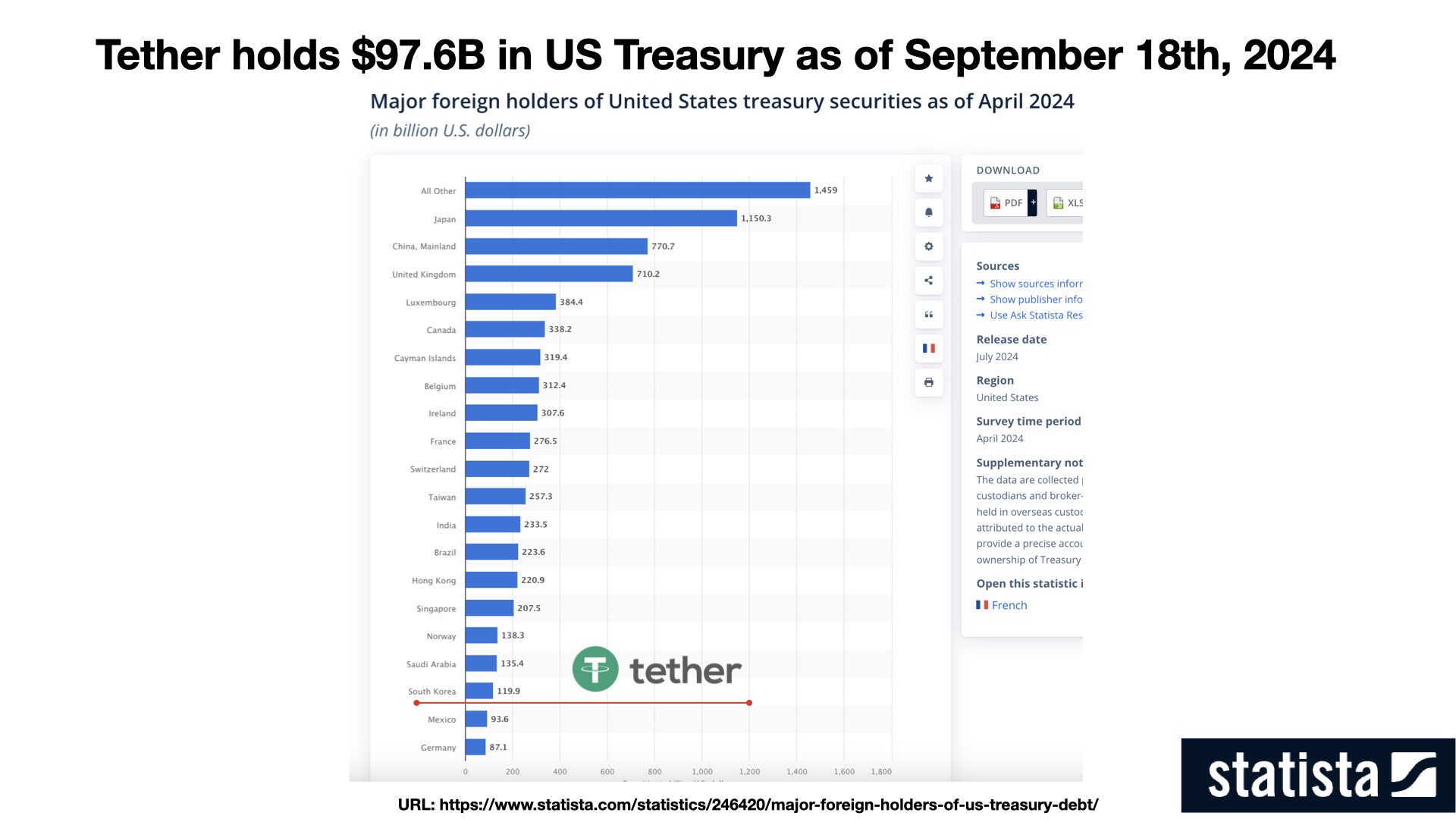
If there is a path to building a Network State without needing self-defense or buying security from another country, it might have the highest possibility of realization in the shortest time.
In other words, I believe we should consider creating a superior social model within an already excellent society as one of the construction models for the Network State.
#3. What is the Optimal Route to Build This New Society?
As repeated before, if we can build a Network State without needing self-defense or continuous purchase of US Treasury bonds, it would be the shortest path to realization.
For me, the answer is Zuizterland. Yes, it means creating a new social system beneficial to them within Switzerland, the world's most DAO-advanced society and a politically neutral country.
In other words, it might mean building the 27th Canton. As I have just moved to Switzerland, I do not yet see the optimal method for reaching a political-economic consensus with the entire Swiss society on this idea.
However, the most important point is that I consider Switzerland the society closest to the conditions mentioned in point 1.
That is why I moved here to learn their living textbook for decentralized direct democracy and permanent neutrality, which they have defended and developed for over 700 years.
To me, Swiss society itself looks like a “Living University" for the human civilization of the future. I study here every day.
Moreover, what I love most about talking to Swiss people is that they do not take pride in their highly balanced direct democracy system for both techno-optimism and social stability, which they have nurtured and maintained for over 700 years, rejecting various power holders. Instead, they operate it daily with a very humble mindset, thinking there is still room for improvement.
I fell in love with that spirit and truly want to contribute to their society from the bottom of my heart.
That is Zuizterland. Yes, through what only we can do, we will contribute to the development of their civilization. The continuous efforts will naturally pave the way to building a Network State within Switzerland.
Because, as seen in the conditions mentioned in point 1, there are still many things that Swiss society does not have at this moment. For example, a stable deflationary currency system and low-cost UBI Technology that everyone can operate. There are many other things as well including eliminating high living cost issues in Switzerland for tech entrepreneurs in Zuzalu Community who can bring the seed of innovation to Swiss society. The community of Zuitzerland will be the great catalyst to bring more Web3 talents to Switzerland.
In other words, the mission of Zuizterland is to create "what Switzerland still needs but does not currently have yet."
And the tools and the advanced knowledge of building a civilized society that we will learn from Switzerland will become indispensable in constructing a Network State outside of Switzerland.
Naturally, the vision that Zuizterland will become one of the Permanent Nodes of Zuzalu lies here.
About Network State: https://thenetworkstate.com/
About Zuzalu: https://www.palladiummag.com/2023/10/06/why-i-built-zuzalu/
About Zuitzerland: https://x.com/zuitzerland


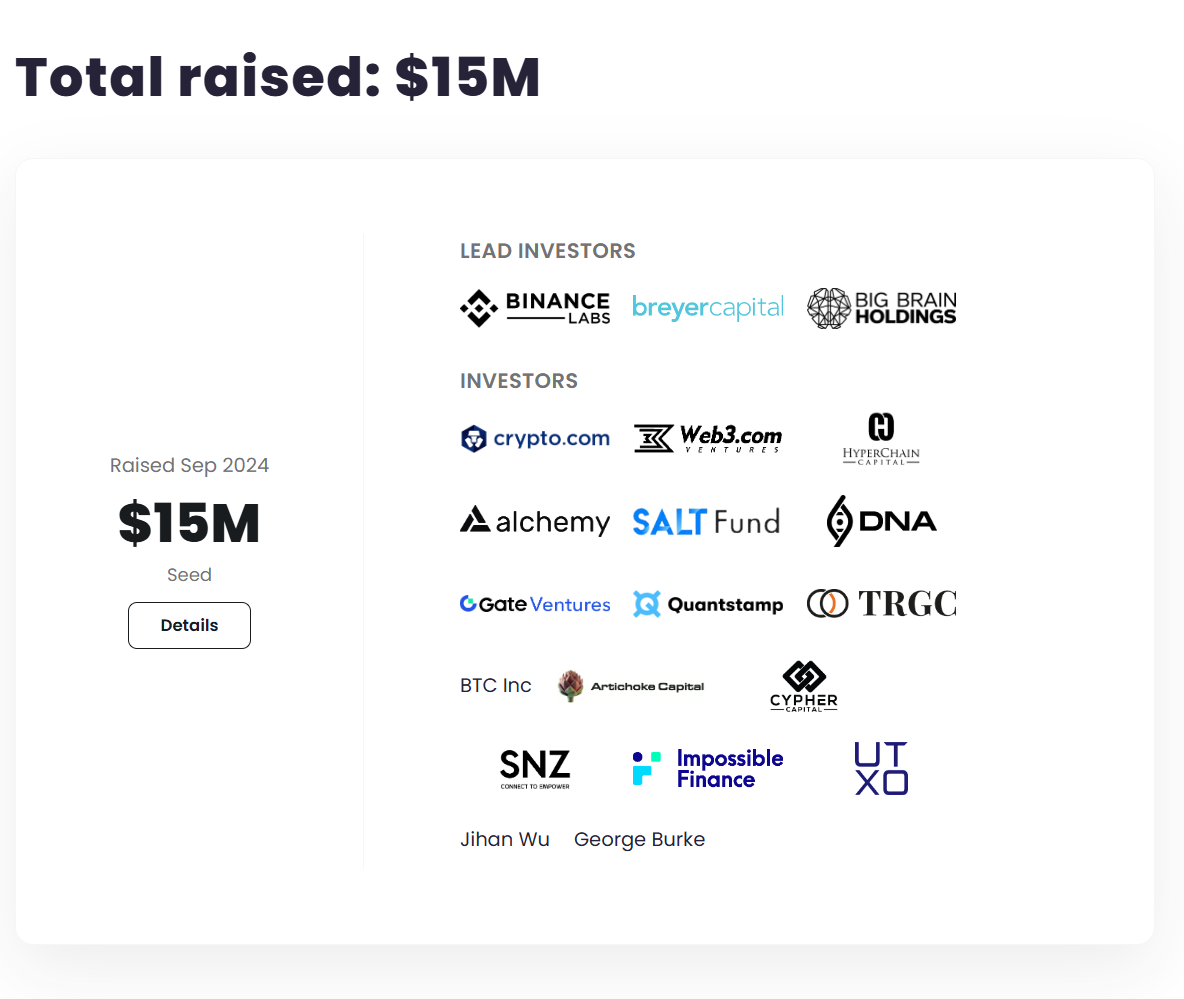

评论 (0)